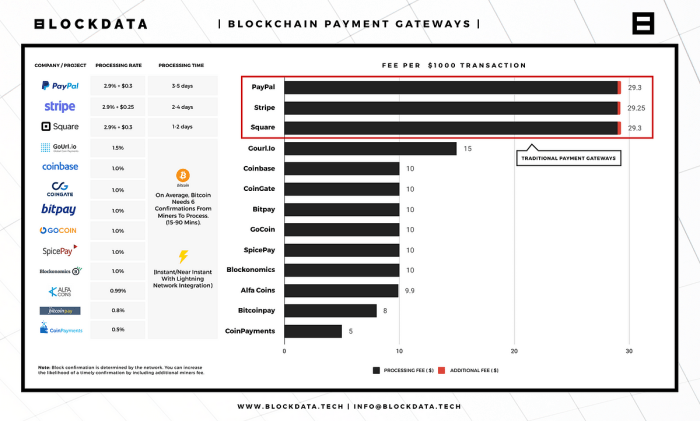How Crypto Can Reduce Transaction Costs sets the stage for a deep dive into the world of cryptocurrency, shedding light on the fascinating ways it can revolutionize financial transactions.
From transparency to smart contracts, discover how crypto is reshaping the landscape of transaction costs.
Introduction to Cryptocurrency and Transaction Costs

Cryptocurrency is a digital or virtual form of currency that uses cryptography for security. It operates independently of a central authority, such as a government or bank, making it decentralized and secure. Transactions are recorded on a public ledger called a blockchain, ensuring transparency and immutability.
Transaction costs refer to the expenses incurred when making financial transactions, including fees charged by banks, payment processors, and other intermediaries. These costs can add up, especially for international transactions, and can slow down the transfer of funds.
The Potential Benefits of Reducing Transaction Costs with Cryptocurrencies
- Lower Fees: Cryptocurrencies can significantly reduce or eliminate the need for intermediary fees, resulting in lower transaction costs for users.
- Speed: Cryptocurrency transactions can be processed much faster than traditional banking systems, enabling quick and efficient transfers of funds.
- Global Accessibility: Cryptocurrencies can be used by anyone with an internet connection, providing financial inclusion to individuals in underserved regions.
- Transparency: Blockchain technology ensures transparency in transactions, allowing users to track their funds in real-time.
- Security: Cryptocurrencies offer enhanced security features, such as encryption and decentralized storage, minimizing the risk of fraud and unauthorized access.
Transparency and Efficiency in Transactions
Cryptocurrencies offer a high level of transparency in transactions due to the decentralized nature of blockchain technology. Each transaction is recorded on a public ledger that is accessible to anyone, providing visibility and accountability.
Blockchain technology plays a crucial role in enhancing transaction efficiency by eliminating the need for intermediaries such as banks or payment processors. Transactions are processed directly between the parties involved, reducing the time and cost associated with traditional payment methods.
Reducing Intermediaries
- By eliminating intermediaries, such as banks or payment processors, cryptocurrency transactions can be executed faster and at a lower cost.
- Without intermediaries, there are fewer fees involved in transactions, leading to overall cost savings for both businesses and consumers.
- Smart contracts, a feature of blockchain technology, automate the execution of transactions based on predefined conditions, further streamlining the process.
Cross-Border Transactions: How Crypto Can Reduce Transaction Costs

Cryptocurrencies have revolutionized the way cross-border transactions are conducted, offering a more efficient and cost-effective alternative to traditional payment methods. By eliminating the need for intermediaries like banks and financial institutions, cryptocurrencies enable direct peer-to-peer transactions across borders.
Comparison of Transaction Costs
- Traditional cross-border payments often involve high fees charged by banks and financial institutions for currency conversion and processing. These fees can range from 3% to 5% of the transaction amount.
- In contrast, cryptocurrency transactions typically have lower fees, especially for larger transactions. The fees are usually based on the network congestion and the amount being transacted, but they are generally lower compared to traditional methods.
- Additionally, cryptocurrencies eliminate the need for multiple intermediaries, further reducing costs associated with cross-border transactions.
Impact on Global Commerce
- The reduced transaction costs associated with cryptocurrency transactions have a significant impact on global commerce. Businesses can now engage in cross-border trade more easily and cost-effectively, opening up new markets and opportunities for growth.
- Smaller businesses and individuals can also benefit from lower transaction costs, enabling them to participate in the global economy without being burdened by excessive fees.
- Overall, the efficiency and transparency offered by cryptocurrencies in cross-border transactions contribute to a more seamless and inclusive global marketplace.
Smart Contracts and Automation

Smart contracts are self-executing contracts with the terms of the agreement directly written into code. They automatically enforce and facilitate the negotiation or performance of a contract, reducing the need for intermediaries and manual oversight.
Role of Smart Contracts in Reducing Transaction Costs
Smart contracts play a crucial role in reducing transaction costs by eliminating the need for intermediaries, such as lawyers or brokers, and automating the execution of agreements. This automation streamlines processes, reduces the potential for errors, and minimizes the associated costs of manual intervention.
- By cutting out intermediaries, smart contracts reduce fees and administrative costs typically incurred in traditional contract execution.
- Automation ensures that transactions are completed efficiently and accurately, saving time and resources.
- Smart contracts also enhance transparency and trust as the terms of the contract are immutable and executed as programmed, reducing the risk of disputes.
Real-World Examples of Industries Benefiting from Smart Contract Implementation, How Crypto Can Reduce Transaction Costs
Industries such as supply chain management, real estate, and insurance have started leveraging smart contracts to streamline processes and reduce transaction costs.
- In supply chain management, smart contracts can automate the tracking and verification of goods, reducing delays and errors in the process.
- In real estate transactions, smart contracts can automate the transfer of property titles and payments, simplifying the buying and selling process.
- In insurance, smart contracts can automate claims processing and verification, reducing the time and costs associated with manual claim handling.





